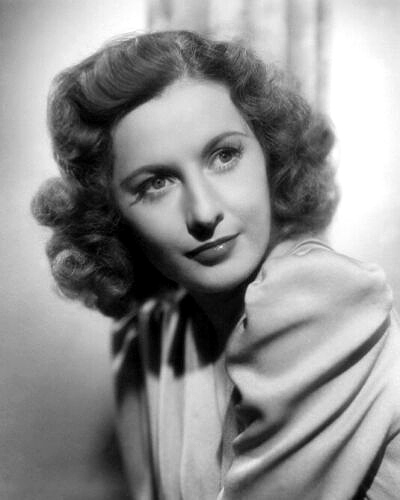Barbara Stanwyck
 Barbara Stanwyck (; born Ruby Catherine Stevens; July 16, 1907 – January 20, 1990) was an American actress and dancer. A stage, film, and television star, during her 60-year professional career, she was known for her strong, realistic screen presence and versatility. She was a favorite of directors, including Cecil B. DeMille, Fritz Lang, and Frank Capra, and made 86 films in 38 years before turning to television. She received numerous accolades, including three Primetime Emmy Awards, a Golden Globe Award, and was nominated for four Academy Awards.
Barbara Stanwyck (; born Ruby Catherine Stevens; July 16, 1907 – January 20, 1990) was an American actress and dancer. A stage, film, and television star, during her 60-year professional career, she was known for her strong, realistic screen presence and versatility. She was a favorite of directors, including Cecil B. DeMille, Fritz Lang, and Frank Capra, and made 86 films in 38 years before turning to television. She received numerous accolades, including three Primetime Emmy Awards, a Golden Globe Award, and was nominated for four Academy Awards. Orphaned at the age of four and partially raised in foster homes, she always worked. One of her directors, Jacques Tourneur, said of her, "She only lives for two things, and both of them are work." She made her debut on stage in the chorus as a Ziegfeld girl in 1923 at age 16, and within a few years was acting in plays. Her first lead role, which was in the hit ''Burlesque'' (1927), established her as a Broadway star. In 1929, she transitioned from the stage to the film industry, and began acting in talking pictures. Frank Capra chose her for his romantic drama ''Ladies of Leisure'' (1930), and Stanwyck later became a favorite of Capra’s, leading to another three collaborations. This led to additional leading roles which raised her profile, such as ''Night Nurse'' (1931), ''Baby Face'' (1933), the controversial ''The Bitter Tea of General Yen'' (1933), and ''Gambling Lady'' (1934).
By the late 1930s, Stanwyck had moved to more mature roles in critically and commercially successful comedies and dramas. For her performance as the titular character in ''Stella Dallas'' (1937), she earned her first Academy Award nomination for Best Actress. In 1941, she starred in two screwball comedies: ''Ball of Fire'' with Gary Cooper, and ''The Lady Eve'' with Henry Fonda. She received her second Academy Award nomination for ''Ball of Fire'', and in the decades since its release, ''The Lady Eve'' has come to be regarded as a comedic classic, with Stanwyck's performance widely hailed as one of the best in American comedy. Other successful films during this period are ''Remember the Night'' (1940), ''Meet John Doe'' (1940) and ''You Belong to Me'' (1941), reteaming her with Cooper and Fonda, respectively, ''The Gay Sisters'' (1942), and ''Lady of Burlesque'' (1943).
By 1944, Stanwyck had become the highest-paid actress in the United States. That year, she received a third Academy Award nomination for Best Actress in the film noir ''Double Indemnity'', playing a wife who persuades an insurance salesman to kill her husband. In 1945, she played a homemaker columnist in the holiday classic ''Christmas in Connecticut,'' and the following year, starred as the titular femme fatale in ''The Strange Love of Martha Ivers.'' For the remainder of the decade, Stanwyck starred in additional successes ranging from romantic dramas and comedies, to suspenseful, crime-noirs. Her films during this period include ''My Reputation'' (1946), ''The Two Mrs. Carrolls'' (1947), ''Sorry, Wrong Number'' (1948), for which she received her fourth and final Academy Award nomination, and ''East Side, West Side'' (1949). By the early 1950s, Stanwyck’s career began to decline, despite a fair number of leading and major supporting roles, the most successful being ''Clash by Night'' (1952), ''Jeopardy'' (1953), and ''Executive Suite'' (1954). In the 1960s, Stanwyck had made a successful transition to television, where she won three Emmy Awards, for ''The Barbara Stanwyck Show'' (1961), the Western series ''The Big Valley'' (1966), and the miniseries ''The Thorn Birds'' (1983).
She received an Honorary Oscar in 1982, the Golden Globe Cecil B. DeMille Award in 1986, and several other honorary lifetime awards. She was ranked as the 11th-greatest female star of classic American cinema by the American Film Institute. Provided by Wikipedia
-
1